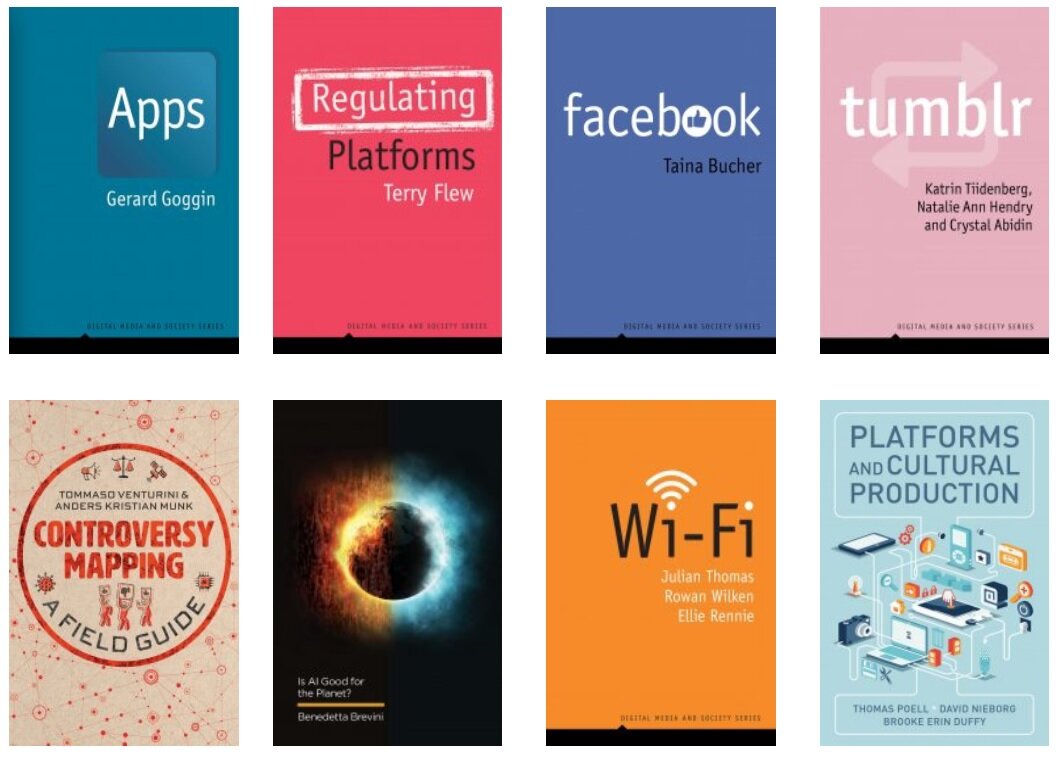Conference/BOOKS (Polity Press): living with AI
The topic of AI (artificial intelligence) as a political, social, cultural and environmental concern - rather than a matter of programming and design - is on the rise. As the use of AI grows, so do the concerns regarding its ethical regulations, and social impacts. The research is catching up. We have already presented two books on the topic, AI for everyone? form Westminster University Press and Atlas of AI from Yale University Press, earlier in this blog. A visit to the Polity Press' virtual book stalls at the AoiR conference presents several more incredibly interesting reads.
Making Sense of AI: Our algorithmic world presents an introduction into understanding the impact of AI and algorithms on search and calculation, work and employment, racism, inequalities, surveillance and data capitalism, as well as automated welfare and automated warfare. An Introduction to communication and artificial intelligence is another introductory book, one that focuses on communication, language, automated translation and robotic creativity. (This book may seem furthest from our focus on digital politics - but consider, for example, the political importance of translators and interpreters, and the impact of their replacement with automated translation). Machine Habitus: Towards Sociology of Algorithms takes a more in-depth, theoretical exploration of social impacts of AI and algorithms, drawing on Pierre Bourdieu's work.
In AI We Trust: Power, Illusion and Control of Predictive Algorithms looks specifically on the automation of prediction, and the social and political implications of this process. At the centre of the book is the question of autonomy and agency and how these are impacted in delegating predictive scenarios to computers, while ending up acting the way AI predicted. This is presented as a universal concern. But beyond a generic philosophical dilemma lie tremendous powers currently being given to predictive tech, which, as many have aptly shown, cements and strengthens existing inequalities be it the war on poor or data-driven racist policing (see also an incredibly insightful discussion of this topic in Race After Technology, reviewed in detail in a separate post, where Ruha Benjamin shows that automation both speeds up and deepens already existing racial discrimination).
Finally, moving from implications of AI on social control, power and inequality, Is AI good for the Planet turns to environmental implications of creating and maintaining the use of AI in the world of depleting resources and climate crisis.


